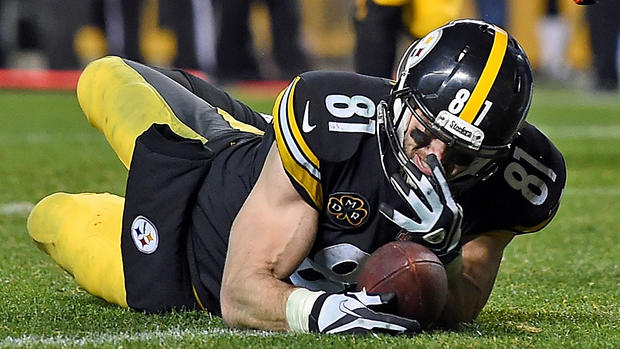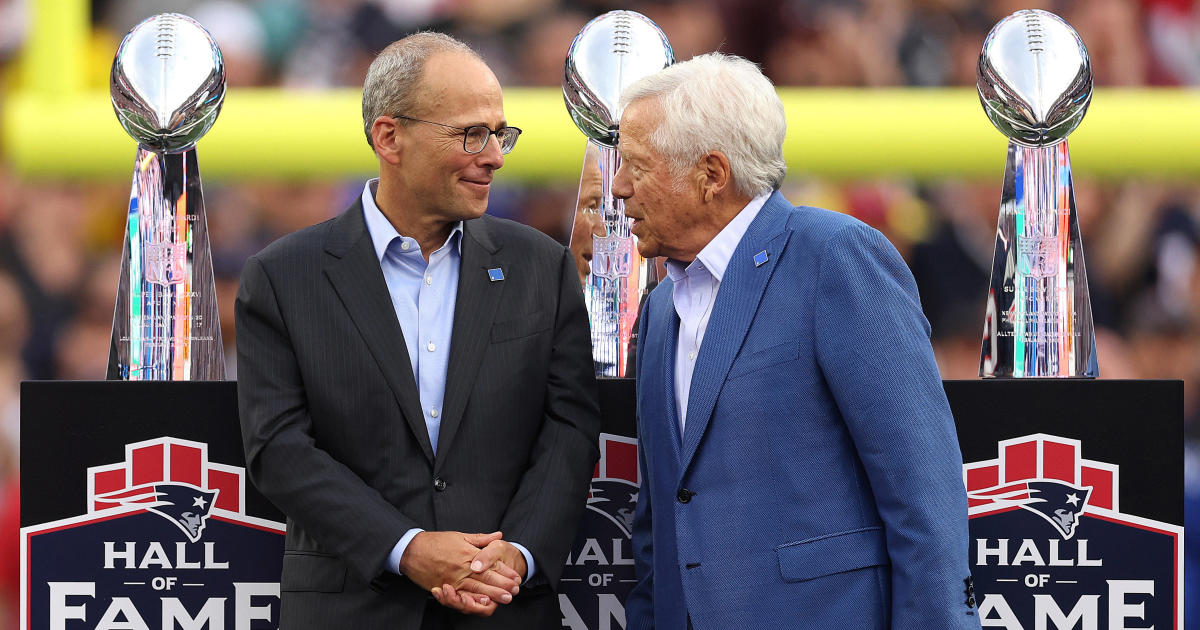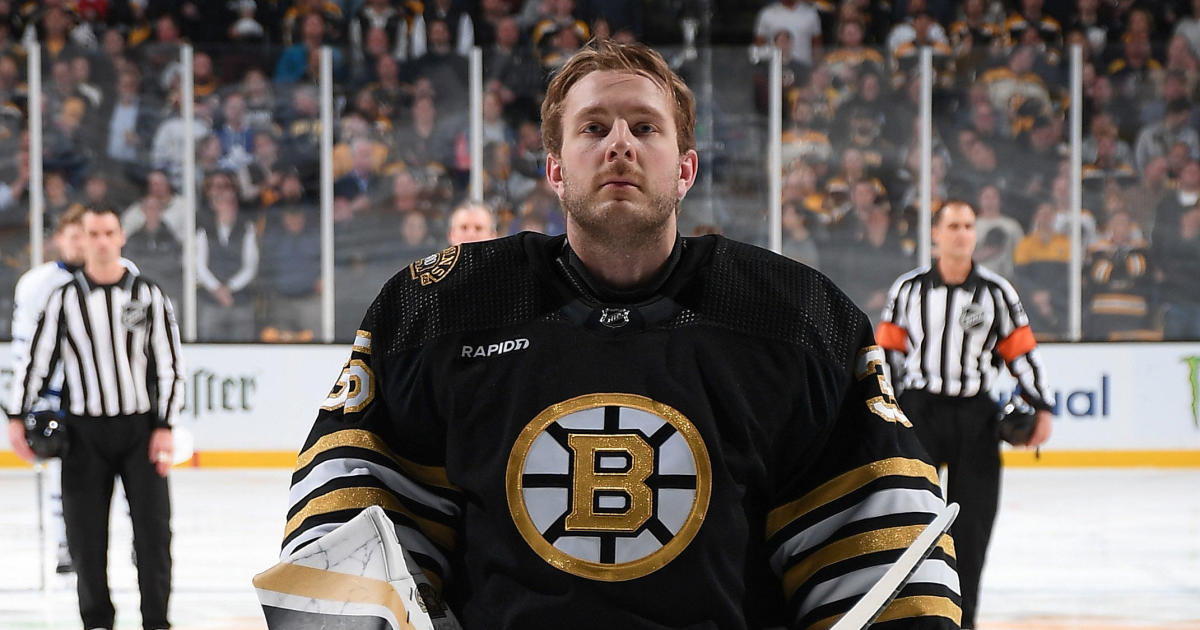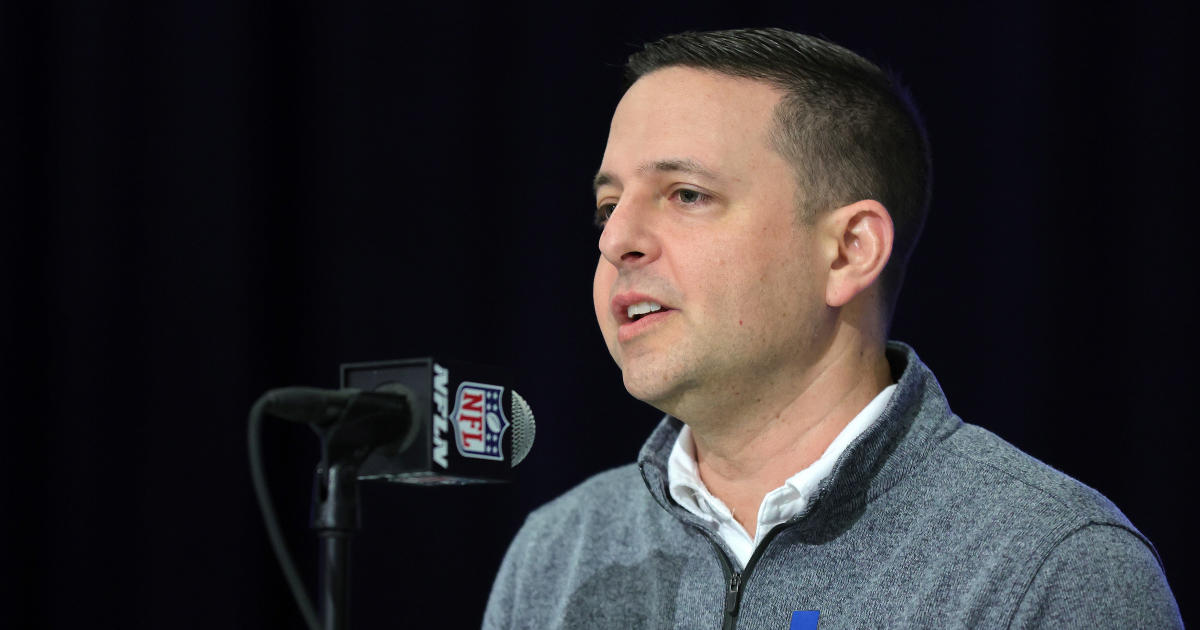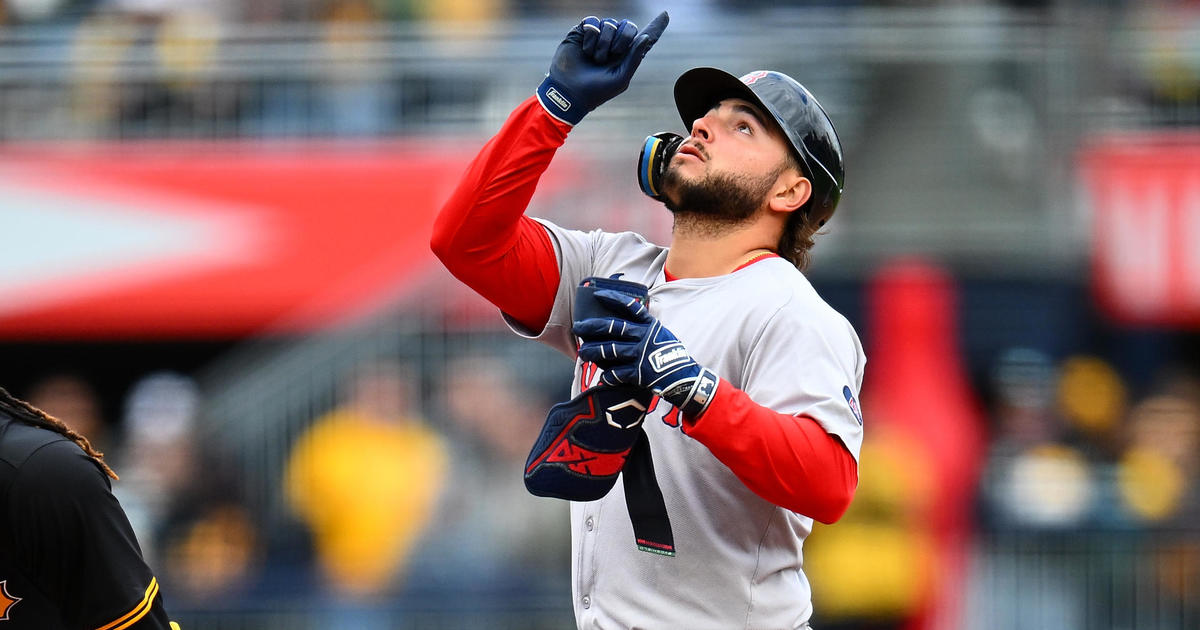NFL's Catch Rule Still Makes Very Little Sense, With Vance McDonald's TD For Steelers The Latest Case
By Michael Hurley, CBS Boston
BOSTON (CBS) -- Imagine, if you will, a world where a billion-dollar corporation has the faintest hint of an issue, then tries to fix the issue, but ends up complicating the matter by a significant margin.
If you follow the trials and tribulations of the National Football League, then I suppose this wouldn't require much imagination.
While the blunders and missteps of the NFL from recent years are innumerable, the pressing matter for the purpose of this story is the new and "improved" catch rule. It reared its head again on Thursday night, and it clearly makes less sense than ever before.
The situation was this: Midway through the third quarter, on a third-and-8 from the Panthers' 12-yard line and with the Steelers leading 31-14, Ben Roethlisberger threw to Vance McDonald in the back of the end zone. The tight end reached up while falling out of the back of the end zone to snatch the pass out of the air as he hit the deck.
In an impressive show of body control, McDonald was able to get both feet and both knees to hit in bounds before his body fell out of the back of the end zone. Doing that while catching the pass makes it an obvious reception.
But ... did McDonald really catch the pass? The tight end bobbled the ball throughout the process, letting the ball go from his palms, to his finger tips, to being sandwiched between the back of one hand and the fingers of another. For as long as football has existed, "catching" the football in this manner would not constitute actually catching the football, unless the player remained in the field of play for the entirety of the process.
Here are some views. As you'll see, McDonald never fully possessed the football until he was lying on his back, out of bounds.
No matter which era of football you may have found yourself in over the past 50 years, that would be considered a bobble.
And bobbling the football while falling out of bounds typically means the ball was not caught. If a receiver doesn't control the catch before leaving the field of play, then he doesn't get credit for making the reception. It's not all that complicated.
Yet in 2018, that not only constitutes a catch, but it doesn't even warrant a review. All scoring plays are reviewed instantly, and if the initial replays indicate that a longer, closer look is required, the call will be made to take that longer look. Despite Troy Aikman stating, "It did look like it was moving a little bit and then he's out of bounds, it looked to me, before he actually regained possession of the football," this one did not warrant a longer review.
The only official word from the NFL stated -- rather oddly -- that McDonald "never loses control of the football."
That's a similar statement from Alberto Riveron as the one he made last year, when he stated as fact that Kelvin Benjamin's foot was off the ground while video absolutely did not show that the foot was off the ground. These statements from the NFL are released as if the viewers don't have eyes. It's strange.
Fortunately, former head of officiating Mike Pereira was on the broadcast crew to help explain the confusion. Here's the word salad that he offered up:
"I think, Joe, what they really looked in was the left hand there. Did the left hand ever come off the ball? And here's the theory with replay right now, that if we give them all the shots, all the shots that they can use and they can determine that they would not overturn it, there was not enough to overturn it, so therefore the ruling on the field would have stood, they don't stop it -- for pace of game purposes. And I think that was the case there."
Errr ... what?
That this happened in the same stadium as the Jesse James drop from last season is no coincidence. That was the play that spurred change -- premature change, in one high-profile instance -- and led to the NFL enforcing a new, equally-if-not-more vague policy on what constitutes a catch in a football game. To those who watch the NFL regularly, the Jesse James drop was not at all difficult to understand. Had he done anything except drop the football upon hitting the ground, then it would have been a game-changing and season-altering reception for the Steelers.
Alas, he did drop it. So it was a drop.
Nevertheless, that "controversial" moment was the straw that broke the camel's back, so to speak. The NFL decided change was necessary. So the new rule was created and instituted. That new rule requires that a player must:
A. Have control of the football
B. Have two feet down, or another body part
C. Make a football move, such as
1 A third step
2. Reaching or extending the ball for the line to gain
3. The ability to perform such an act
I'm not sure we ever made it past A. We definitely didn't make it through C. The new rule, such as it is, probably doesn't even need to come into play here. Yet the clear bobble didn't even warrant a real review. Instead, we got a statement saying that the receiver never lost control of the football. What a world.
(We all know that movement of the football does not necessarily indicate a lack of control. But that's a rule that generally applies to a receiver pinning the pass to his body, or having it slightly move as he hits the deck. It does not involve a ball essentially levitating between two hands as a player falls out of bounds.)
There's also this very clear distinction in the rulebook: "If a player, who satisfied (a) and (b), but has not satisfied (c), contacts the ground and loses control of the ball, it is an incomplete pass if the ball hits the ground before he regains control, or if he regains control out of bounds.
Forget "regained" control; McDonald very clearly gained control out of bounds. Nevertheless, six points on the board.
Now, of course, in order to take this story seriously, we must engage in some make-believe. We must pretend as if Thursday night's game in Pittsburgh was an important one, and we have to pretend as though a singular call on a single touchdown might have affected the outcome in some way.
As we of course know, neither of those matters is true. The Panthers essentially punted on this game, and the Steelers won by 31 points. This one, singular call didn't matter much on Thursday. And had the catch been reversed on replay, the Steelers would have had a first-and-goal anyway, because of a Carolina personal foul after the play was over. Nobody would or could ever argue that this call had any impact on anything with regard to the football game in which it took place.
But as the season moves on, and as wild-card spots and playoff byes and, eventually, playoff games are on the line, the calls will become more important. The focus will become greater. And all we'll have to work on is the precedent set on calls like this.
If that is what the NFL wants to call a catch, then fine. You don't actually have to catch the football anymore before falling out of bounds. So long as you sort of kind of maybe have it for the most part, you're going to get credit for the catch. Sensible? No. But if that's what the league wants, then that's what the league wants. More catches, more points, more happy fantasy owners. It's a win-win-win for everyone involved (except the defense, but who cares about defense anymore?).
Just keep that in mind in December, and January, and even February, when another team gets burned by the same call. You might not have cared much on Thursday night in Pittsburgh, but you'll almost assuredly care next time.
You can email Michael Hurley or find him on Twitter @michaelFhurley.
